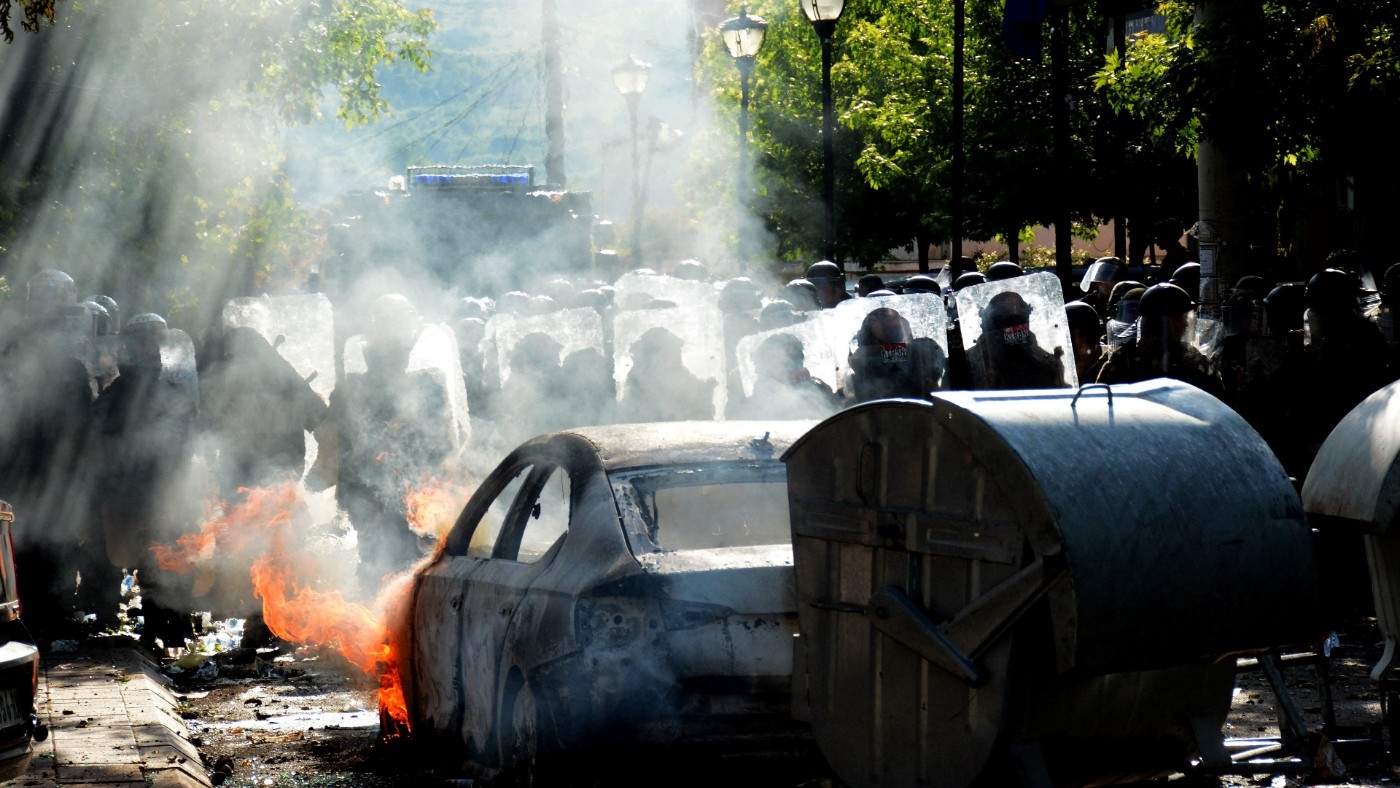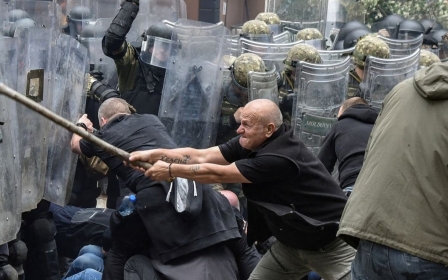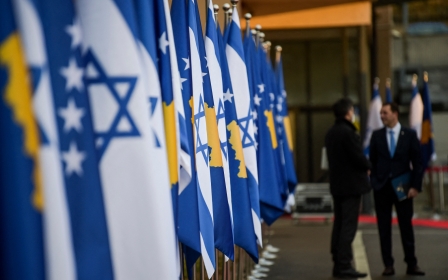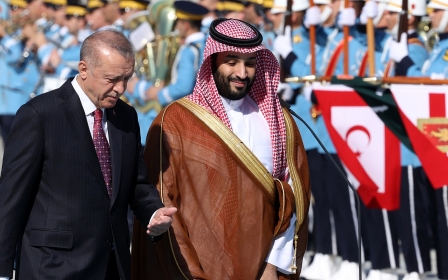Turkey to deploy troops to Kosovo amid unrest

The Turkish defence ministry announced on Saturday that it was deploying special forces to Kosovo at the request of Nato as part of a peacekeeping mission.
Turkey is sending a commando battalion affiliated to its 65th mechanised infantry brigade on Sunday and Monday following a request from Nato's joint command force in Naples.
The Turkish commandos will join Nato's Kosovo Force (KFOR), a peacekeeping mission now looking to quell unrest in the north of the Balkan country.
"Our assigned unit (a commando battalion) is planned to be deployed to the Sultan Murat Barracks in Kosovo on 4-5 June," the Turkish defence ministry said in a statement.
The ministry called for restraint and constructive dialogue to resolve a crisis that it said could harm regional security and stability. It said that Turkey was closely following developments in the Balkans, "where we have common historical and cultural values".
New MEE newsletter: Jerusalem Dispatch
Sign up to get the latest insights and analysis on Israel-Palestine, alongside Turkey Unpacked and other MEE newsletters
Part of the Ottoman Empire for more than four centuries, Kosovo declared independence from Serbia 15 years ago. Serbia does not recognise Kosovo's statehood; nor do Russia, China and five EU countries, including Spain and Greece.
More than 90 percent of Kosovo's population are ethnic Albanians, and over 90 percent of its population are Muslim.
Crisis in Kosovo
The current crisis in the country dates back to April, when Kosovo Serbs boycotted local elections. As a result of the low turnout, ethnic Albanians took control of local councils in Kosovo's north, which had been predominantly Serb.
When those Albanian representatives took office in the region's Serb-majority area, they were assaulted as they tried to enter public buildings by Belgrade-backed militants sporting the fascist "Z" insignia, Russia's symbol of war in Ukraine.
The violence last weekend and on Monday resulted in police and Nato soldiers clashing with men clad in masks and wielding metal pipes. Nato condemned the attack, which left at least 30 soldiers wounded, as "totally unacceptable".
The fighting prompted the North Atlantic alliance to announce that it would send additional troops on top of 700 already on their way to the Balkan country to boost its 4,000 strong mission. Turkish troops will now add to that number.
In a move that has been described as "strategic incoherence" by the UK foreign affairs select committee chair Alicia Kearns, the US has sanctioned the Kosovan government in Pristina for not running its decision-making process through Washington first.
A Kosovo-based academic, who wished to remain anonymous in order to speak freely, told Middle East Eye: "The US is obviously turning against Kosovan Prime Minister Albin Kurti, in part because he's trying to assert the kind of sovereignty that they never had in mind for Kosovo."
The US has largely avoided criticising Serbia following the violence, in a bid to keep the close Russian ally from slipping further into Moscow's embrace.
Middle East Eye delivers independent and unrivalled coverage and analysis of the Middle East, North Africa and beyond. To learn more about republishing this content and the associated fees, please fill out this form. More about MEE can be found here.




